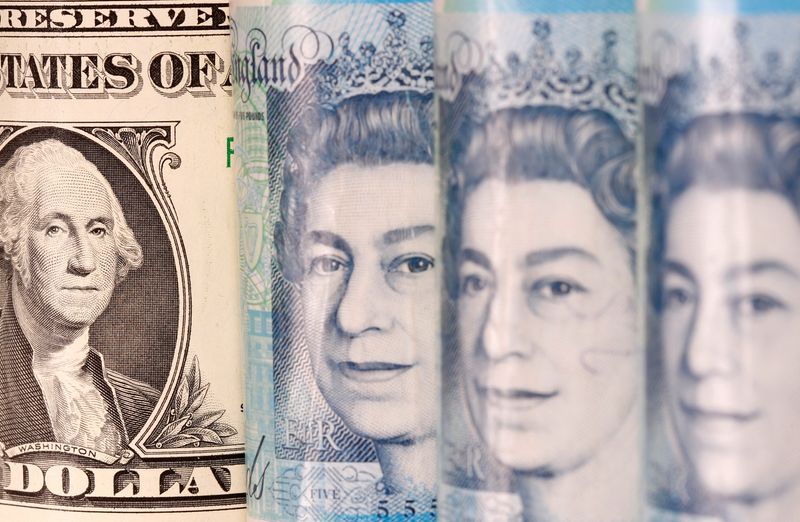
LONDON (Reuters) – The pound dropped to its lowest against the dollar since early July on Thursday, brushed aside by the U.S. currency’s relentless rise following Donald Trump’s U.S. election victory.
Those developments are swamping British news for investors, although they will be keeping an eye on finance minister Rachel Reeves’ first Mansion House speech to leaders of the City, as well as remarks from Bank of England governor Andrew Bailey.
Reeves said in advance that she wants Britain to build a slew of “megafunds” with up to 80 billion pounds ($102 billion) in fresh investment firepower, under plans for the biggest shake-up in British pensions seen in decades.
Sterling was last down 0.6% on the dollar at 1.2632, its lowest since July 2, falling through its early August low in mid-morning London trading.
The move was largely in line with peers. The euro was down 0.6%, at a one year low, and the dollar was around 0.5% higher on the Japanese yen and the Swiss franc. [FRX/]
“Cable (pound/dollar) is a dollar story at the moment,” said Nick Rees, currency analyst at Monex Europe.
Higher trade tariffs and tighter immigration under the incoming Trump administration are projected to fuel inflation, potentially slowing the Federal Reserve’s rate cutting cycle longer term.
These, alongside expectations for deeper deficit spending and higher short term economic growth are lifting Treasury yields, providing the dollar with additional support.
The benchmark 10-year Treasury yield hit 4.483% on Thursday, its highest since July. [US/]

The pound was steady on the euro at 83.12 pence to the common currency. It has been gradually strengthening in recent months, “a reflection of European political risk which should be negative for the euro,” said Rees, pointing to the situation in France and Germany.
The collapse of Germany’s ruling coalition last week forced the country into a snap election that will is likely to take place in February, while the French government is trying to push its draft budget for next year over the line, despite lacking a majority in parliament.
This post is originally published on INVESTING.



